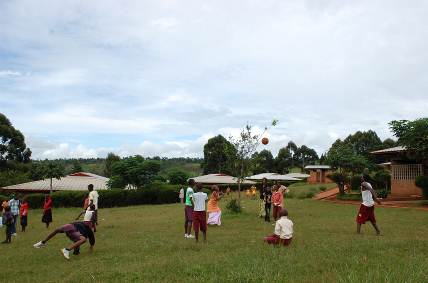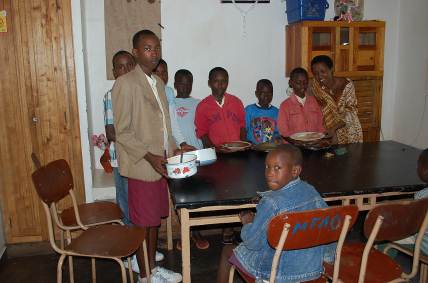Peace has returned to Burundi – but the process of recovery is slow

Muyinga is a small city of approximately 50,000 inhabitants and lies at an altitude of over 1,700 metres above sea level. It is the capital of Muyinga Province, which is located in northern Burundi and borders Rwanda to the north and Tanzania to the east.
Living conditions are tough in Burundi: the country has one of the 15 highest unemployment rates in the world. In November 2011, the inflation rate was 16.4 per cent. The prices of basic commodities, including rice, bread, sugar, water, electricity, fuel and gas, soared, in some cases recording price increases of almost 50 per cent, and the price of water increased by 266 per cent. This meant that for many households it became impossible to afford even the most basic goods and services, and people became increasingly dependent on aid programmes to ensure their survival and that of their children.
Many people live on the streets of Muyinga because they have become homeless. This includes children who live on the streets alone or in gangs – they are exposed to a great number of dangers. For one thing, the nights at this high altitude can get incredibly cold, and when combined with the frequent rains, this can pose a serious health hazard and can even be life-threatening.
To this day, Burundi ranks amongst the bottom countries in the world when it comes to rule of law, political stability and government effectiveness. As recently as 2008, a combatant group from the Democratic Republic of the Congo was reported to have recruited child soldiers here in Burundi. Not only are today’s children living in conditions of extreme insecurity and poverty, many of them suffered severe traumas during the years of violent conflict, or they live with older siblings or parents who did. All of these factors can seriously endanger family stability.
An urgent need to support families
In recent years, we have expanded our efforts to reach out to vulnerable families in the surrounding community through the SOS Family Strengthening Programme. We ensure that children have access to essential educational, nutritional and health services, and we support parents in protecting and caring for their children, for example by offering guidance on income-generating skills and parenting practices. We provide counselling and psychological support to children and parents, and we assist families affected by HIV/AIDS. In cooperation with local authorities, we also work towards strengthening the support systems available within the community. Over 400 children and their caregivers currently benefit from these services.
What we do in Muyinga

For children from the region who are no longer able to live with their parents, 15 SOS families can provide a loving home for up to 150 children. In each family, the children live with their brothers and sisters, affectionately cared for by their SOS mother.
Around 90 children from both the children’s village and the neighbourhood attend the SOS Kindergarten, ensuring that children from SOS families make friends and are integrated into the local community from a young age. The provision of day-care is particularly valued by parents who need to go out to work or look for a job during the day, as they can leave their children in safe hands.
The children then go on to complete their primary education at the SOS Hermann Gmeiner School in Muyinga, which is attended by over 430 pupils, making it a valuable educational institution in the region.
When young people who grew up in one of the SOS families feel ready to move out of home in order to study or receive training, the SOS Youth Programme continues to support them as they make the transition into independent adulthood. The young adults live together, in five houses (two for boys and three for girls), supervised and guided by a qualified SOS counsellor.